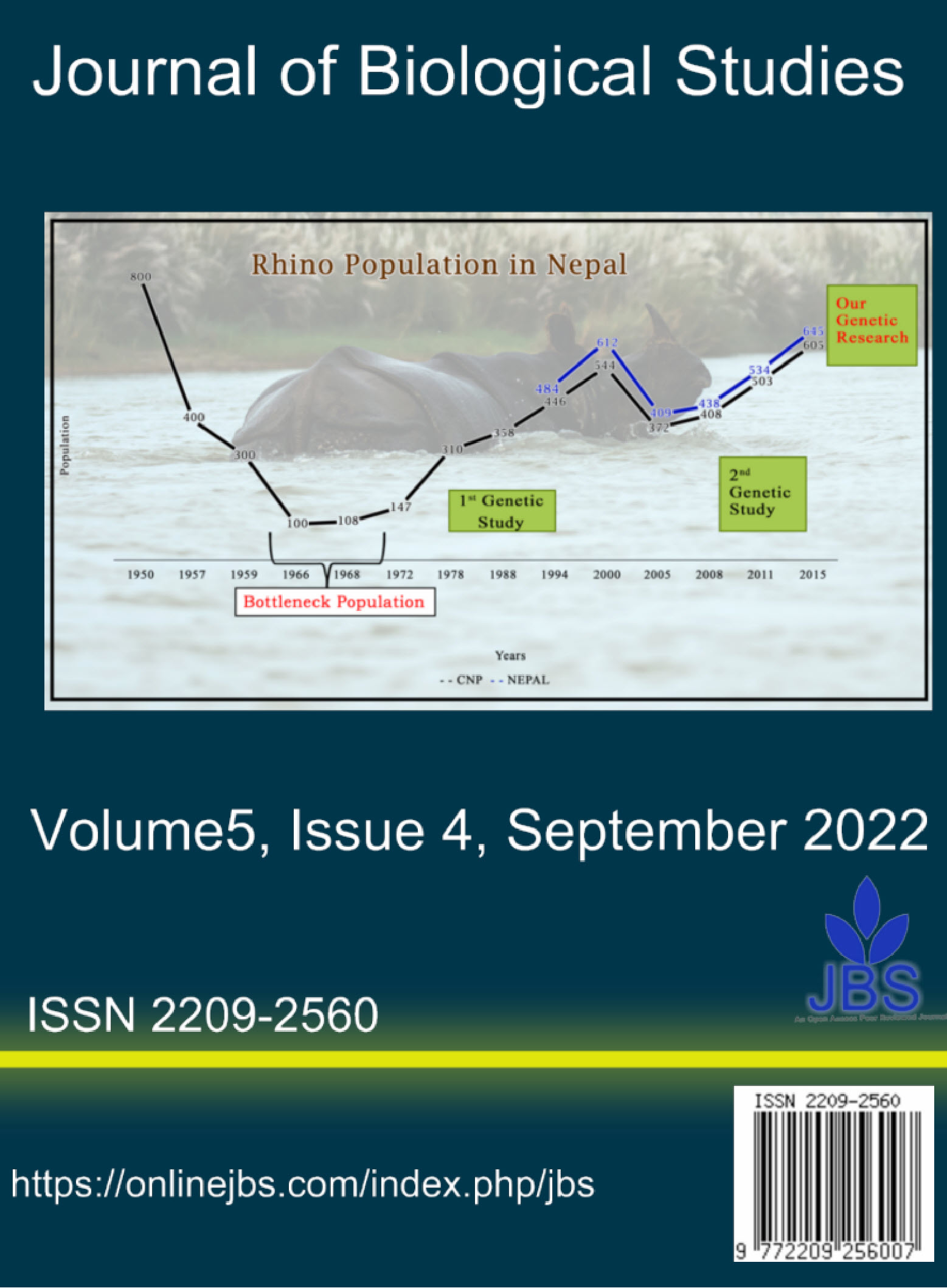Milk dependent hemagglutination inhibition and calcium alginate immobilization of ricin isolated from Ricinus communis L. seeds
Main Article Content
Abstract
Ricin, a lethal lectin is reported to be used in the purication techniques of proteins and
cell surface glycoconjugates by immobilizing them onto the matrices of polymers. Ricin can
also bind the glycoproteins present on the membranes of Red Blood Cells (RBCs) resulting in
visible agglutination. They are the major phytotoxins of castor beans (Ricinus communis L.)
from where they were isolated using 60% ammonium sulphate precipitation in our study. The
partially purified form of the isolated ricin was characterized for temperature stability by Tube
Hemagglutination Test (THAT) and Milk dependent hemagglutination inhibition by Slide
Hemagglutination Test (SHAT) along with immobilization with calcium alginate gel beads.
THAT, SHAT and immobilized activities were tested on 3% RBC suspension which showed the
efficiency of the extracted ricin. The maximum temperature stability with significant reduction
in the agglutination was recorded at 80 and at 95, no clumping activity was noted. The
results obtained from SHAT infer that ricin is inhibited by the increasing concentrations of
milk. At the initial concentration of milk in the mixture (0.275%), hemagglutination was
comparatively seen higher and at 0.625%, ricin was completely inhibited by the milk. The
immobilized calcium alginate-ricin beads were crushed to expose the entrapped lectins to the
RBCs and the interaction was checked microscopically. Immobilized ricin could potentially
bind the RBCs surrounding the slurry and was confirmed upon microscopic evaluation.
Article Details

This work is licensed under a Creative Commons Attribution 4.0 International License.
